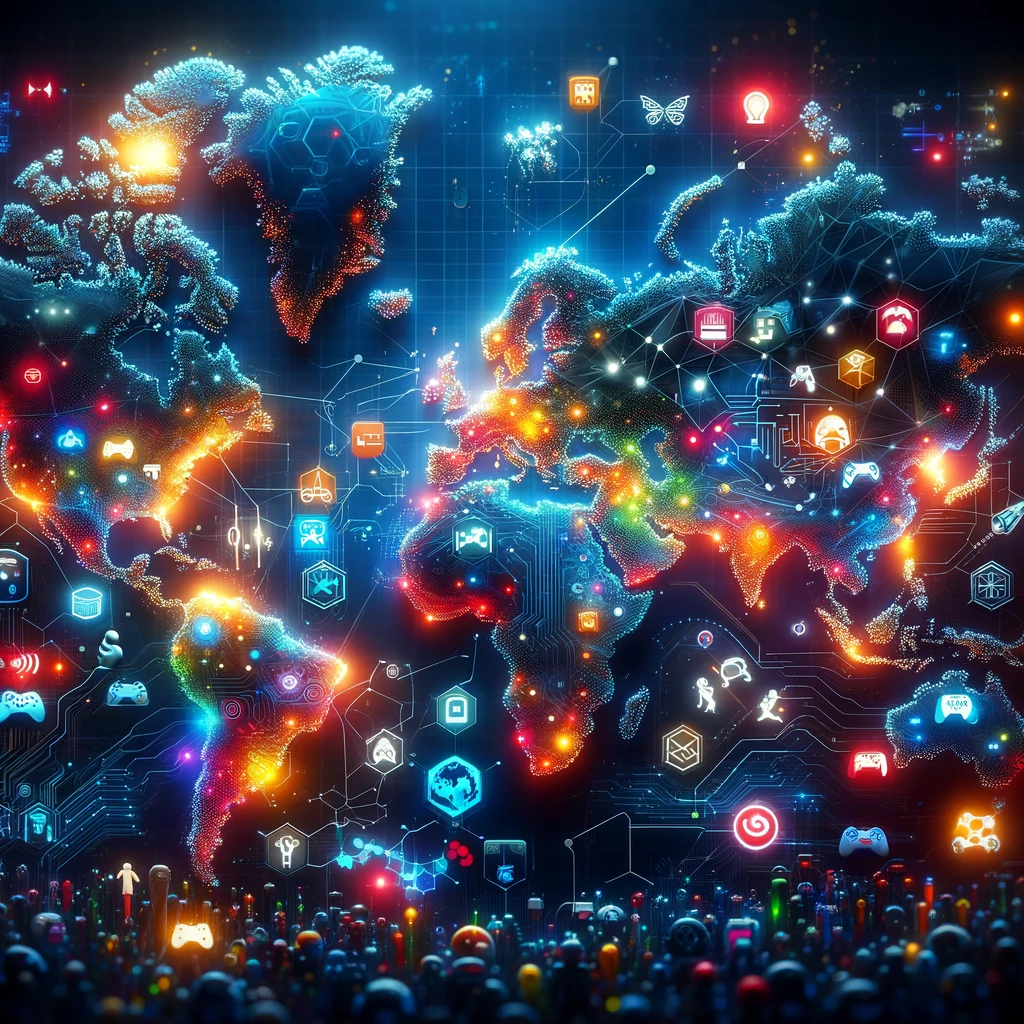
Introduction:
The gaming industry has witnessed unprecedented growth over the past decade, evolving into a cultural and economic powerhouse. From mobile gaming to esports, this post delves into the factors driving this global surge and what it means for players and developers alike.
Technological Advancements:
Innovations in gaming technology, such as VR, AR, and cloud gaming, have transformed how games are played and experienced. These advancements make gaming more immersive and accessible, attracting a broader audience.
Increase in Mobile Gaming:
The proliferation of smartphones has opened up gaming to millions worldwide, making it a popular pastime across diverse demographics. Mobile games offer convenience and variety, fueling daily engagement.
Esports and Competitive Gaming:
Esports has turned gaming into a spectator sport, with tournaments attracting huge global audiences and offering substantial prizes. This has not only legitimized gaming as a career but also boosted its popularity and acceptance.
Social Gaming:
Multiplayer games have created communities that transcend geographical boundaries. Social interaction through gaming is now a significant part of its appeal, facilitating connections and friendships.
Cultural Integration:
Video games have become a part of mainstream media and culture, influencing movies, music, and literature. Their impact on culture underscores the importance and permanence of gaming in modern society.
Conclusion:
The growth of gaming is not just a trend but a significant shift in the entertainment landscape. As technology advances and more people connect through games, the potential for the industry's future is boundless.
Call to Action:
Join the conversation on social media to share how gaming has impacted your life and what you envision for the future of this dynamic industry.